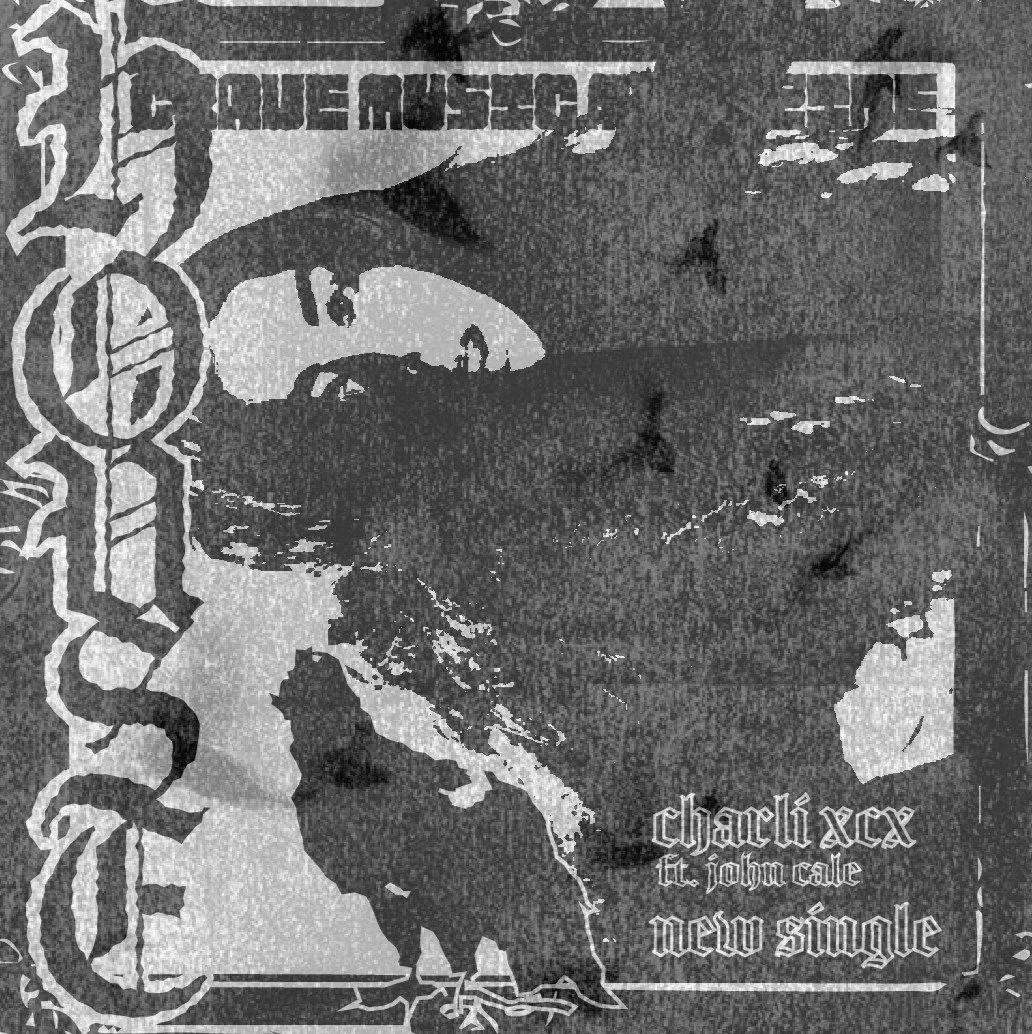CHARLI XCX PARTNERS WITH JOHN CALE TO INTRODUCE HER DARKEST ERA YET WITH “HOUSE”
Charli XCX has been a constant coin in motion these past few years. On one side — the one most listeners know — are her bratty, club-pumping beats. On the other side lies her darker, more poignant counterpart. With her newest release, “House” featuring John Cale, Charli’s coin flip slows midair, and it’s strikingly clear which side it has landed on.
Graphic by Paige Firsten
Image via Charli XCX
This single is the first original song from Charli’s forthcoming album for Emerald Fennell’s Wuthering Heights movie. “House” not only incorporates the dark romanticism of its source material, but it’s also an entire tale of mystery all on its own. Partnering with Velvet Underground co-founder John Cale was a bold, intuitive choice by Charli — a choice that has a powerful payoff. Cale applies his own ethos of how music can be both elegant and brutal to the track, and the result is a gothic masterpiece.
Eerie scraping of strings heightens the listener’s attention as the song opens, giving an immediate sense that they are about to experience something new and twisted. Just as the listener is settling into this ominous, shadowy atmosphere, in comes Cale’s low, raspy voice. His spoken word delivery conveys the dark poetry that exudes from both the lyrics and the heavy sonic backdrop. The opening words feel as though the listener is on the other side of, or eavesdropping on, a confessional conversation: “Can I speak to you privately for a moment? / I just want to explain.” There’s a measured, yet subtle danger to Cale’s tone and it carries the weight of his words with a melancholic grace. This tone is most prominent in the final lyrics of the opening verse: “If it’s beauty / Do you see beauty? / If there’s beauty / Say it’s enough,” bringing forth a theme of one’s own mental entrapment in the search for perfection and beauty, when the reality of it is loneliness and seclusion. As Cale speaks the word “enough,” the sonic landscape overpowers with swarming, deep vibrations.
Thus, Charli’s arrival is signified. The tension continues to build with the unsettling haunt of the cello and the addition of Charli’s high, contrasting voice alongside Cale’s as they both repeat the séance-esque chorus, “I think I’m gonna die in this house.” The combination of the two voices reflects an aura of chaos and control that further grounds the listener in the song’s evolution. As Charli screams the final chorus line, the extrasensory climax is pushed into motion. This powerful release is laced with fear, desperation, and yet also a sense of fight — a fight between rejecting and accepting this tortuous cycle. Charli’s signature use of autotune is woven in here, but in a freshly dark way that accentuates the track’s energy. It adds a harsh, distorted quality that has the ability to either make the listener freeze or flinch.
The enveloping climax — with its screeching guitars, haunting strings, and Charli’s mangled, electronified belts — fades out to a stark and chilling finale as Cale murmurs with resignation, “In every room / I hear silence.” A breathtaking and thought-provoking line, considering the subtle irony of it — how silence is not necessarily heard, but rather an echo of what was just heard is. Just like how the listener is now left with the cold echo of this song.
This mixture of elegance and brutality, as Cale’s artistic mindset emphasizes, is more than just a three-minute song for a movie; it’s a musical portrait of refinement and ruin. “House” is further proof that Charli XCX is one of the most fearless, unpredictable artistic forces in modern pop today. With Charli’s fearless innovation and Cale’s spirit for the avant-garde, “House” is a gripping soundscape that feels alive, unstable and utterly sinister.
Keep up with Charli XCX:
Website / Spotify / Apple Music / Instagram / TikTok / YouTube / X
Keep up with John Cale:
